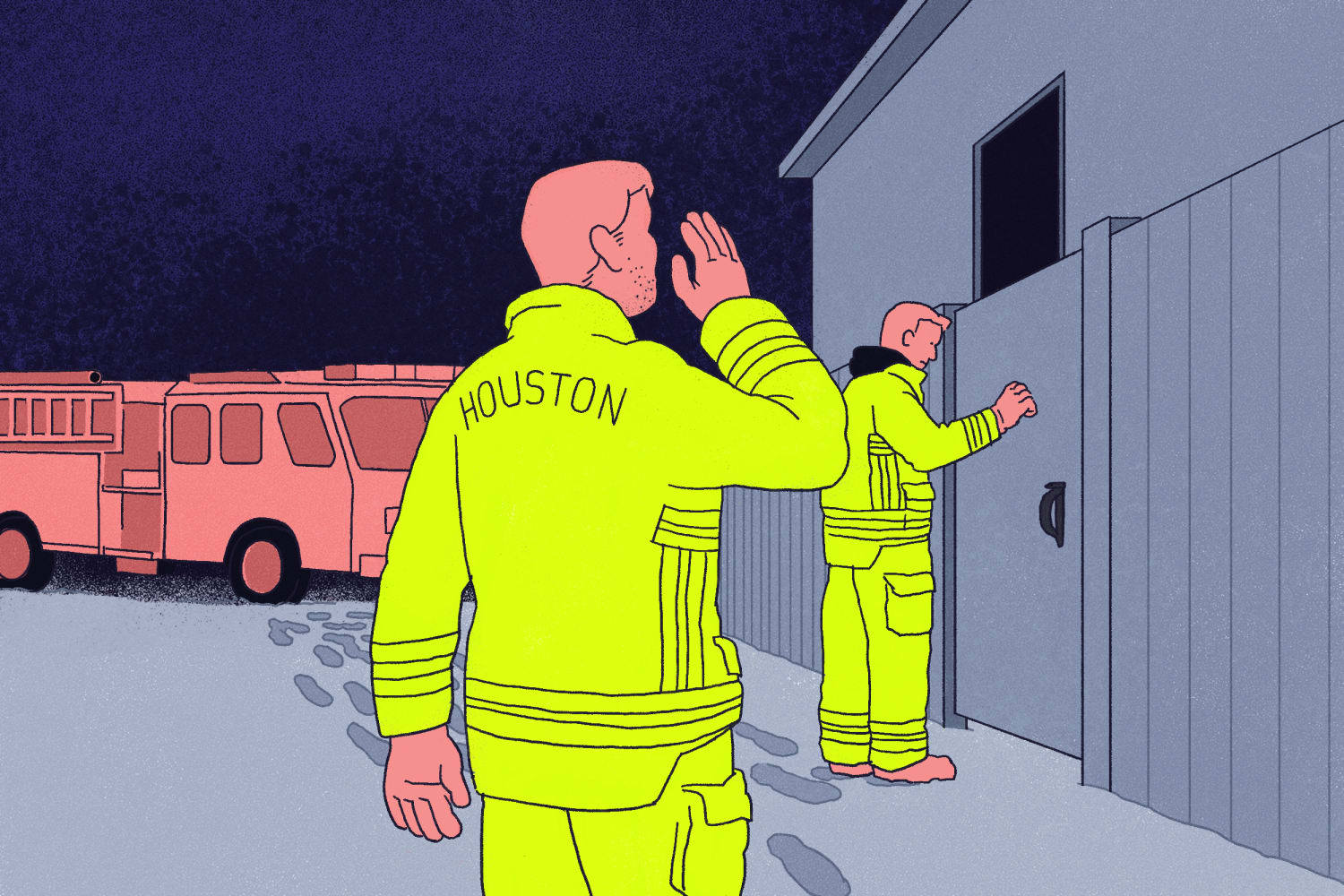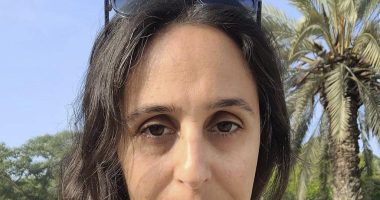
Less than five minutes later, the fire crew was gone. The four family members, who had already spent hours unconscious, were left unattended and exposed to the lethal, invisible gas for nearly three more hours, according to documents from the Houston fire and police departments and recordings of 911 calls obtained by ProPublica, The Texas Tribune and NBC News. An operator at the dispatch center didn’t share the crucial details about Negussie’s carbon monoxide concerns with the crew at the scene, according to records and interviews with fire department officials. Police officers never arrived. Neither the Houston Police Department nor the city’s emergency center could find any records indicating the fire captain requested assistance.
When emergency responders returned to the home near midnight, after Negussie called 911 again, they found Etenesh Mersha, 46, and her 7-year-old daughter, Rakaeb, dead. Her husband, Shalemu Bekele, and their 8-year-old son, Beimnet, were lying on the floor, still breathing. They were rushed to the hospital. Bekele spent days recovering. Beimnet was in the hospital for nearly a month.
An investigation by ProPublica, The Texas Tribune and NBC News in April told the story of Bekele and Mersha’s family and some of the hundreds of others across the state who turned on gas stoves, lit barbecue grills indoors or ran their cars in enclosed spaces in an attempt to stay warm after they lost power during the unprecedented weeklong storm.
The investigation revealed that the state’s failure to regulate the power grid and repeated inaction by lawmakers on legislation that would have required carbon monoxide detectors in homes had contributed to the worst carbon monoxide poisoning disaster in recent history. More than 1,400 people were treated in hospitals across the state that week after being poisoned by the gas. Mersha and Rakaeb were among at least 17 who died.
After the investigation was published, the news organizations obtained nine 911 call recordings and police and fire department reports showing that the failures extended beyond the state’s inaction. Decisions made by Houston emergency responders to leave Bekele and Mersha’s home before making contact with the family, along with similar cases across the country, point to a need for policy changes to avoid such tragedies in the future, six emergency response experts told the news organizations.
In Houston and in many cities across the country, first responders have discretion to decide whether to force their way into a home based on what they see, the details they get from dispatchers and the perceived credibility of the information provided by the 911 caller.
That system clearly broke down in the case of Bekele and Mersha’s family, said Mike Thompson, a retired fire service battalion chief from Rapid City, South Dakota, who has 27 years of fire service and paramedic experience. Thompson said it is critical for first responders to get all of the information needed to make an informed decision about forcible entry, but he said emergency crews also should have been on high alert for carbon monoxide poisonings given the winter storm. That day alone, the Houston Fire Department responded to nearly 100 calls related to carbon monoxide, compared to a daily average of about seven in January.
The key consideration for first responders should be to ensure that the person is not in danger, said Thompson, a fire and medical expert with the International Academies of Emergency Dispatch. “You keep trying to make contact until you prove yourself wrong,” he said.
On July 23, more than a month after the news organizations began asking questions about the incident, the Houston Fire Department launched an investigation into the response to Negussie’s 911 calls. Citing the ongoing investigation, department officials declined interview requests for emergency responders and dispatchers involved in the case.
“What happened in this incident, it seems to me, because the investigation is still ongoing, is that the dispatcher just failed to provide the necessary information for the people on the scene to make the appropriate decision,” said Houston Fire Department Chief Samuel Peña. “The second response was handled as we normally expect, but they had the additional information that apparently the first crew did not.”
“A thorough review is underway and any breach of policy will be held to account,” Peña later added.
On that February evening, Peña had tweeted that the department was “stretched extremely thin.” He urged residents to stay safe around open fires and space heaters, ensure they had working carbon monoxide detectors in their homes and follow safe driving precautions.
But despite understanding the higher risk of carbon monoxide poisonings during the winter storm, Houston Fire Department officials disputed that they should have considered that possibility when determining whether to force entry into the home. Such decisions were not that simple given the volume and wide range of calls they were receiving, fire officials said.
“The incredible demand placed on the emergency response system (fire and police) from the thousands of emergency calls received that week was extremely taxing, but the Houston Fire Department worked tirelessly to address that demand,” Peña said in an email.
Growing frustration
Medical examiner records do not provide a time of death for Mersha and her daughter, showing only the time they were discovered lifeless in different parts of their home.
The car was still running when Bekele and Mersha were found in the garage. Rakaeb died in the home’s living room, while Beimnet was found unconscious in a utility closet connected to the garage.
Given the available information, it is unclear why two members of the family died and two survived. But the outcome shows why it could have been crucial for the first emergency crew to enter the house, said Dr. Kelly Johnson-Arbor, co-medical director at the National Capital Poison Center and an expert in carbon monoxide poisoning.
“This is so unfortunate,” Johnson-Arbor said in an email. “Time can definitely make a huge difference in cases of CO poisoning. While it is not clear what time the victims actually died, it is certainly possible that earlier discovery could have saved their lives and/or resulted in less significant clinical outcomes for the surviving individuals.”
On the morning of Feb. 15, a friend in Colorado was on the phone with Mersha and Bekele’s family when they suddenly stopped responding. She and her husband called 911 in Houston but didn’t have the family’s address. Without it, dispatchers told them, there was nothing they could do.
The couple spent the next nine hours frantically searching on social media for someone who could direct emergency responders to Bekele and Mersha’s home. Finally, they found Negussie’s parents on Facebook and sent a message. “Please call me,” one of them wrote. “Please call police or call me.”
As Ethiopian immigrants whose first language is Amharic, Negussie’s parents decided their college-educated son, a flawless English speaker, would call 911.
“My parents have been here for 20 years, and they understand the limitations the language barrier has on them, and they were not willing to take any risks in trying to save the lives of their family members,” Negussie said.
Bekele and Mersha had followed a similar path as Negussie’s parents, arriving from Ethiopia 10 years ago in search of a better life. Negussie recalls his family picking up their cousins at the airport and helping them navigate the complexities of a new country.
Eventually, the couple found work at a gas station. They had a son and then a daughter, and they saved their earnings to buy the three-bedroom town house where they planned to watch their children grow up.
The two families often shared tea and bread after church, a Sunday tradition, but they had missed services the previous day because of the weather.
The day of the storm, Negussie and his parents were huddled beneath a blanket in their home, which had lost power. As they waited to hear back from the fire department, they wrestled with whether to go to Bekele and Mersha’s home to check on them and the children.
More than 2 1/2 hours after first calling 911, having heard nothing from authorities, Negussie called again at 11:20 p.m. The operator at first said she had no record that he’d called earlier. After Negussie pressed her, the operator found a record of the call in her log.
Source: | This article originally belongs to Nbcnews.com









